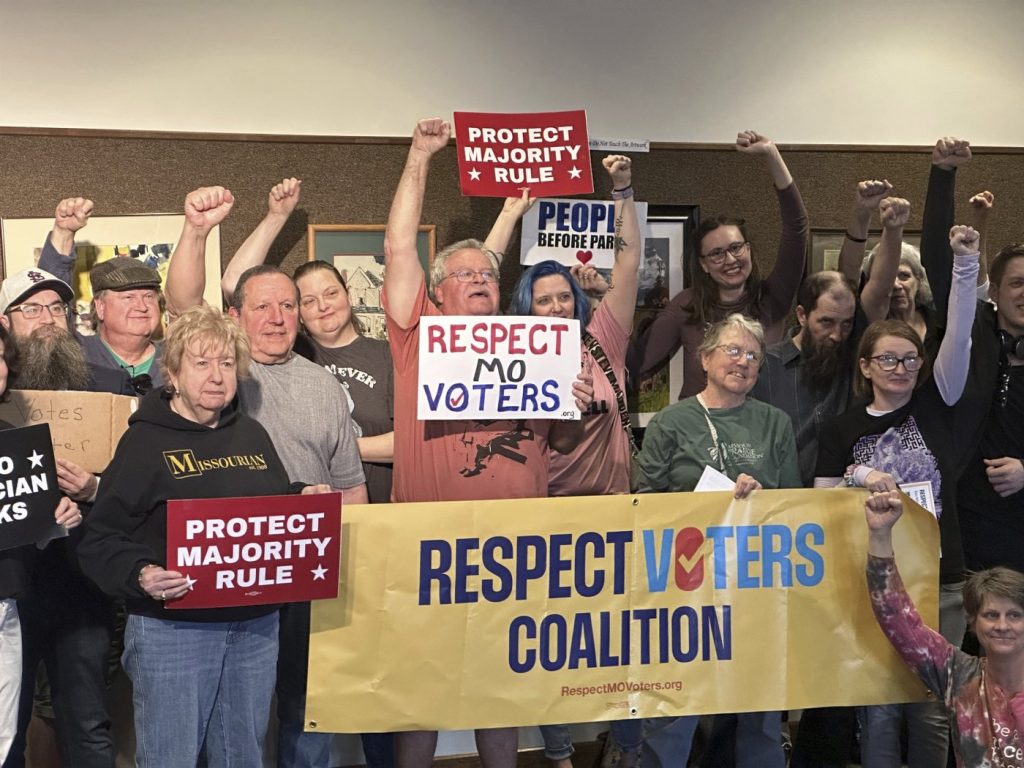In Jefferson City, Missouri, a gathering of over 50 citizens at a public library united to express their concerns regarding the recent legislative actions that threaten their voting rights. Among the attendees, one woman articulated her frustration, stating, "I’m just really upset about our voting rights being taken away from us." Another participant echoed similar sentiments, emphasizing the need to channel their anger into action that protects their rights.
This assembly followed closely after the Missouri House passed legislation aimed at overturning a voter-approved initiative that had guaranteed paid sick leave and annual cost-of-living increases for the minimum wage. However, the focus of this group was not merely on halting further legislative actions in the Senate but on a more significant goal: to prevent the Legislature from reversing the will of the voters in the future.
Recent events in Missouri illustrate a broader struggle over voter initiatives, as Republican lawmakers not only targeted the recently approved workers’ benefits law but also proposed amendments aimed at reversing parts of a new abortion rights amendment and complicating the process for future constitutional amendments. This trend is part of a larger dynamic playing out in various states where lawmakers are increasingly pushing back against voter-led measures.
Historically, Missouri lawmakers have made attempts to undermine voter-approved laws, previously seeking to block funding for Medicaid expansion and altering measures regulating dog breeders and legislative redistricting. In response to these challenges, citizen activists are organizing town-hall forums across the state to rally support for a proposed constitutional amendment aimed at limiting the Legislature's power over citizen initiatives.
“Our goal is to ban politicians from attacking the will of the people,” stated presenter Lindsay Browning during a recent meeting at the Missouri River Regional Library, which is situated blocks from the state Capitol. This push for reform reflects a growing frustration among citizens who feel that elected officials are disregarding their voices and choices.
Adding to the tension, Republican state Representative Mitch Boggs defended the decision to overrule voters' preferences regarding paid sick leave by likening the situation to asking a teenager if they want a checkbook, suggesting that the choice would always favor spending. He argued for the necessity of protecting businesses to ensure job availability, which sparked further outrage among activist members present.
This situation is not unique to Missouri. In Nebraska, lawmakers are contemplating exceptions to existing voter-approved minimum wage and paid sick leave laws. Across the United States, approximately half of the states permit citizens to place proposed laws or amendments on ballots via initiative petitions. Progressively, citizens have utilized this process to implement significant changes regarding abortion rights, recreational marijuana legalization, and healthcare expansions—measures often neglected by the legislature.
However, some lawmakers are countering this trend by proposing more stringent regulations around citizen initiatives, with roughly 100 bills currently active in 18 states aimed at restricting the ability of citizen-led initiatives to make it to voting ballots. Chris Melody Fields Figueredo, executive director of the Ballot Initiative Strategy Center, remarked that these legislative efforts reflect a concerning trend undermining democracy.
Recent proposals in various states further exemplify this backlash. In Idaho, a Republican proposed granting the governor veto power over initiatives approved by less than a two-thirds majority, while in Arkansas, new laws enforce strict requirements on initiative canvassers. Meanwhile, South Dakota's legislature has passed several measures to restrict the initiative process, including shortening signature collection times and increasing the threshold necessary for constitutional amendments.
This wave of legislative actions has alarmed many citizens and democracy advocates who see them as attempts to circumvent the democratic process. The ongoing frustrations in Missouri and other states highlight a significant public response to legislative overreach, as grassroots movements seek to amplify the voice of the people in shaping laws that directly affect them.










